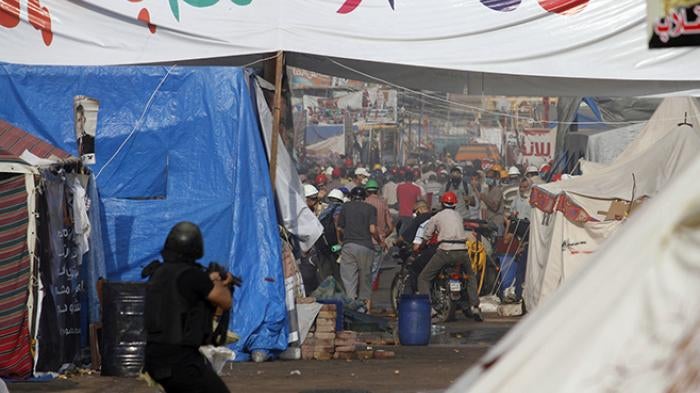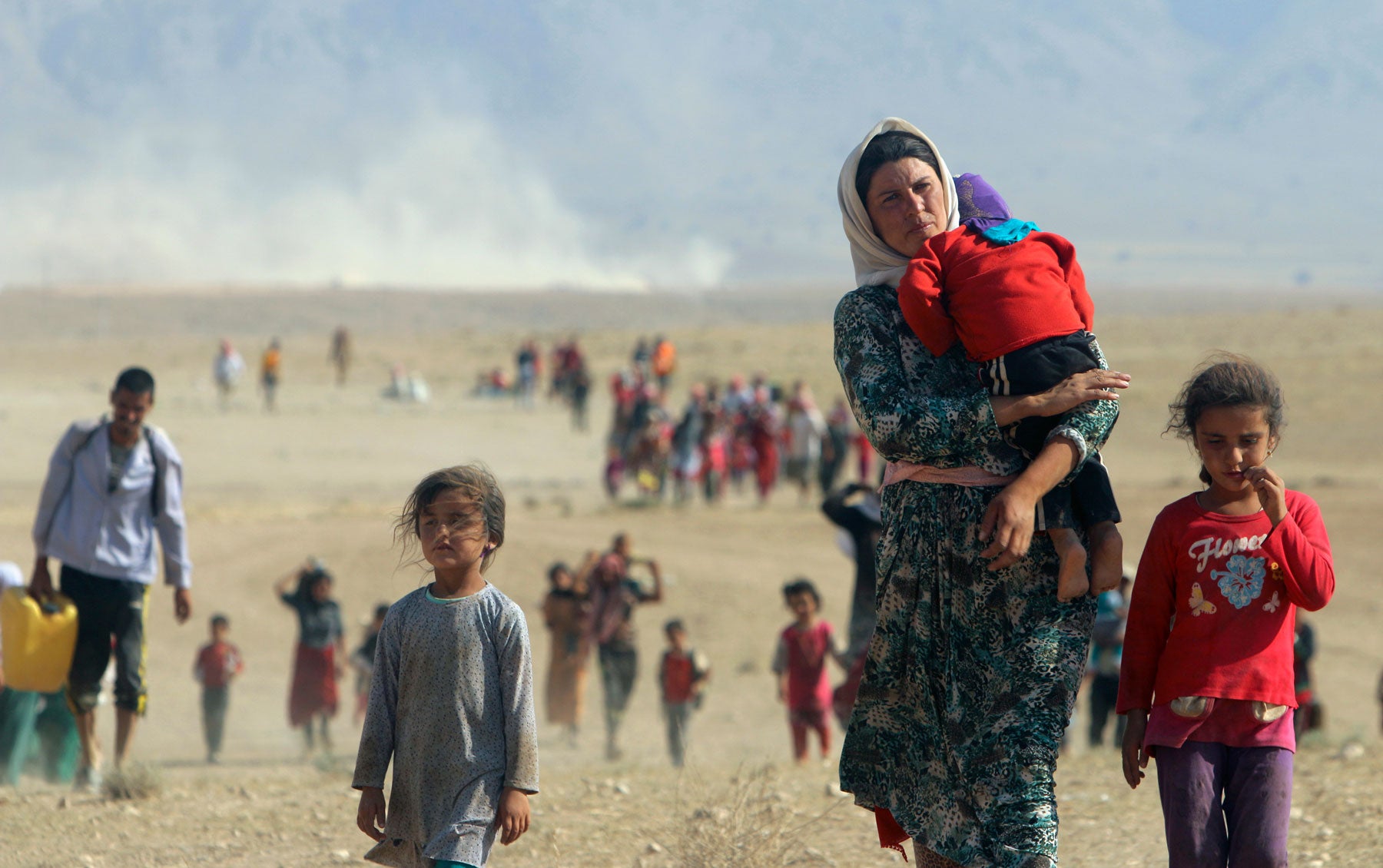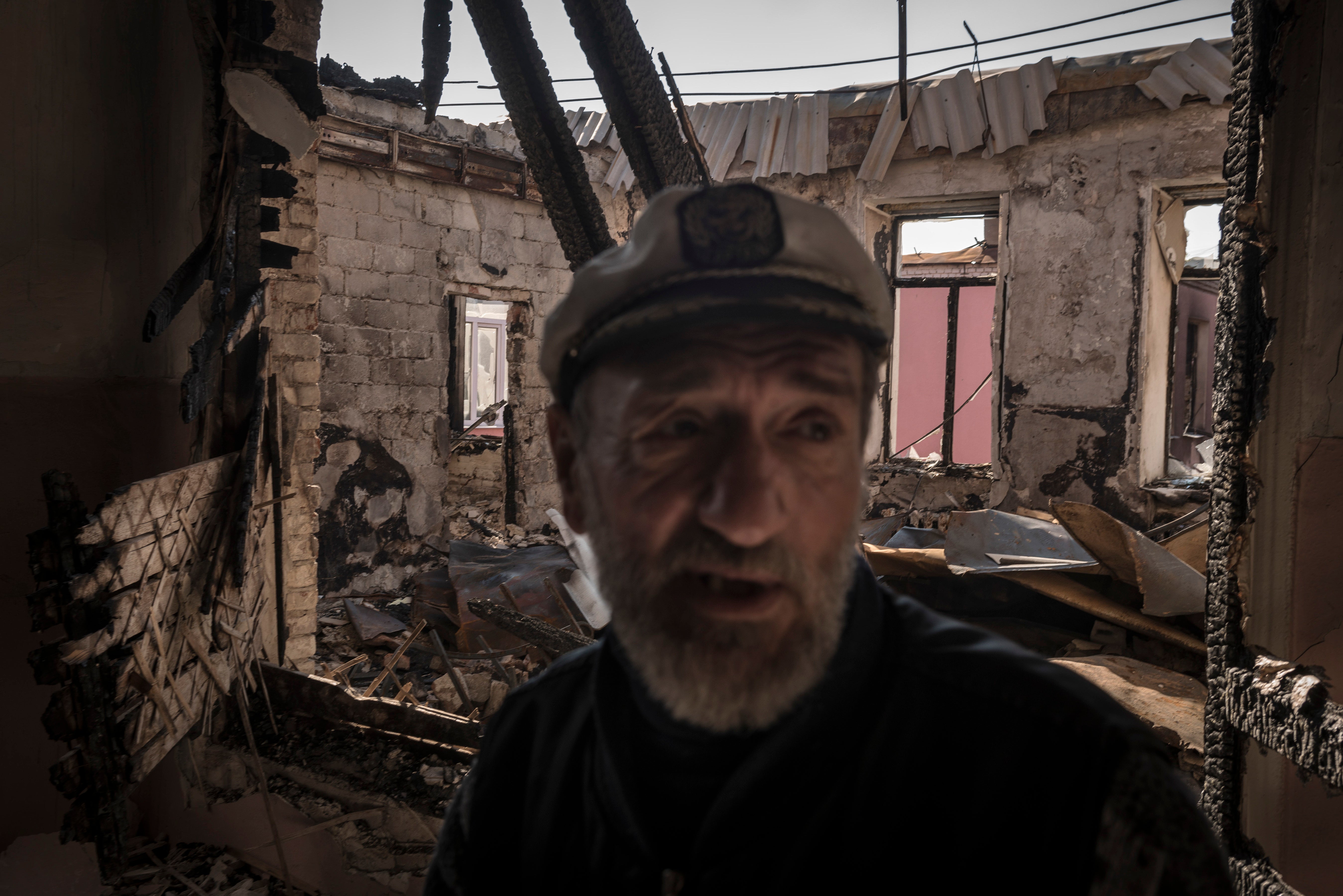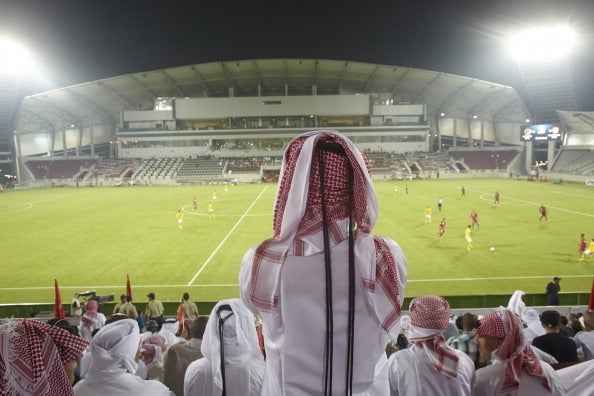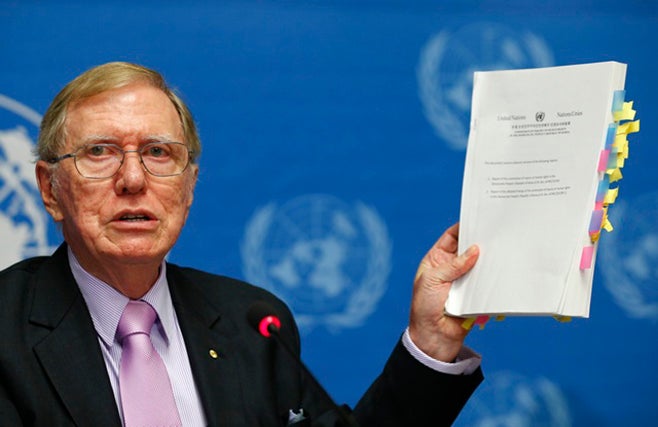Egypt’s human rights crisis, the most serious in the country’s modern history, continued unabated throughout 2014. The government consolidated control through constriction of basic freedoms and a stifling campaign of arrests targeting political opponents. Former Defense Minister Abdel Fattah al-Sisi, who took office in June, has overseen a reversal of the human rights gains that followed the 2011 uprising. Security forces and an increasingly politicized judiciary—apparently unnerved by rising armed group attacks—invoked national security to muzzle nearly all dissent.
Judges routinely ordered detainees held for months based on little, if any, evidence. Thousands arrested after mass protests in 2013 remained in pretrial detention. Pervasive impunity characterized the government’s response to security force abuses. Only four officers have faced charges for human rights violations since July 3, 2013, when the military overthrew President Mohamed Morsy. All the charges stemmed from one incident in August 2013 in which police tear gassed a packed prison van, killing 37 detainees. There has been no accountability for the deaths of more than 1,000 protesters in a series of mostly peaceful demonstrations in July and August 2013.
Protester Killings and Impunity
Security forces used excessive force to disperse protests early in the year. Nearly 20 people, most of them Morsy supporters, died in clashes with police in the first three days of January. On January 25, the third anniversary of the 2011 uprising, at least 64 demonstrators died in clashes with police in protests throughout the country.
Outgoing interim president, Adly Mansour, who handed over power to al-Sisi on June 8, established a presidential fact-finding committee in December 2013 “to gather information and evidence for the violent events” that accompanied the June 30 mass protests and July 3 coup that brought down Morsy, Egypt’s first freely elected president. An executive summary of the commission’s report, released on November 26, did not recommend that charges be brought against any member of the security forces or government for the mass killing. Its mandate did not authorize it to subpoena witnesses or documents, establish individual criminal liability, or make its findings public.
In March, Mansour asked the Justice Ministry to open a judicial investigation into the August 14, 2013, dispersals of pro-Morsy sit-ins at Rab’a and Nahda squares in Cairo in which more than 800 protesters died. The ministry announced it would not assign a judge to investigate these events because this was the prerogative of the prosecutor general, whose office claimed it was already investigating.
A March 18 court ruling sentenced a police captain to 10 years in prison and three lower-ranking officers to one-year suspended sentences for their role in the tear gas suffocation of 37 protesters in a police van outside Abu Zaabel Prison on August 18, 2013. An appeals court overturned the convictions on June 7 and referred the case to the prosecutor general for further investigation. A retrial is scheduled to begin on January 22, 2015.
Mass Arrests
An Interior Ministry official acknowledged in July 2014 that since Morsy’s ouster a year earlier authorities had arrested 22,000 people, most if not all suspected supporters of the Muslim Brotherhood. According to the Egyptian Center for Economic and Social Rights, more than 41,000 people were arrested or faced criminal charges between July 2013 and May 2014.
Judges routinely renewed detention orders of many of those arrested for months without charge or trial and convicted many others in mass trials without establishing individual guilt for criminal offenses. As of July 2014, according to Interior Ministry data provided to the presidential fact-finding committee, more than 7,000 people arrested in the fallout from Morsy’s removal remained in pretrial detention.
Those detained include around 29,000 Brotherhood members, including its high and mid-level leadership, according to the Brotherhood. The arrest campaign expanded in 2014 to include secular and leftist activists on charges that include protesting without authorization, incitement, “thuggery,” vandalism, blocking roads, and belonging to banned or “terrorist” groups.
Due Process Violations and Mass Death Sentences
Egypt’s judiciary exhibited serious procedural deficiencies that deprived detainees of basic due process rights. Though authorities in November 2013 lifted the state of emergency imposed at the time of Morsy’s removal, judges often renewed pretrial detention orders despite a lack of evidence that would warrant prosecution.
Many trials violated Egyptian law as well as international standards. In March and April, a criminal court judge in the governorate of Minya handed down the death penalty to more than 1,200 people allegedly involved in two attacks on police that resulted in the death of one officer. The judge did not allow the defendants the right to mount a meaningful defense or ensure that all had access to counsel.
The first trial, which resulted in 529 death sentences, lasted less than an hour, and only 74 defendants were present. The court also barred some defense lawyers from attending. In the second trial, which yielded 683 death sentences, none of the defendants attended.
Following legally mandated advice from the grand mufti, Egypt’s top religious authority, the judge confirmed 220 of the death sentences, which the prosecutor general automatically appealed as required by law. In December, a separate judge in the governorate of Giza issued preliminary death sentences to 188 people accused of attacking a police station in August 2013 and killing 14 policemen. According to the Brotherhood, 259 of its members, including Supreme Guide Mohamed Badie, have been sentenced to death since Morsy’s ouster.
Egypt’s 2014 constitution permits military trials for civilians, and on October 27, 2014, al-Sisi issued a decree expanding military court jurisdiction to cover crimes that occur on any public, state-owned, or “vital” property. Since the decree, prosecutors have referred at least 455 people—the vast majority of them Brotherhood members—to military court. In April, a military court sentenced a social media manager for the online news website Rassd to one year in prison for helping to leak a tape of remarks by al-Sisi during his time as defense minister. The court acquitted one Rassd employee and handed down three-year sentences to an army conscript and two other men who remain at large. In May and September, military courts handed down one-year sentences to 10 people—most of them Brotherhood members or allied politicians—for attempting to cross into Sudan illegally. In November, a military court in Suez sentenced 17 people to between 5 and 10 years in prison for throwing rocks and incendiary devices at soldiers during the violence following Morsy’s removal.
Torture and Ill-Treatment
At least 90 people died in local police stations and security directorates in the governorates of Cairo and Giza alone in 2014, according to an investigation by the Egyptian newspaper Al Watan, which cited statistics from the Justice Ministry’s Forensic Medical Authority. That number represented a 38 percent increase from the year before.
A spokesman for the authority told the newspaper that prison overcrowding had forced authorities to hold detainees in police stations and other places of temporary detention which were not well ventilated or otherwise properly equipped. Witnesses told Human Rights Watch that police and prison authorities often failed to provide proper medical care to prisoners, leading to death. In some cases of deaths in detention, lawyers and relatives alleged that authorities had tortured the victim.
Detainees also described severe beatings during arrest, arrival at police stations, and transfer between prisons. Scores detained in January protests complained of torture, including electric shocks, to coerce confessions. The Egyptian Initiative for Personal Rights documented the enforced disappearance and torture of dozens of civilians in military detention.
Attacks by Armed Groups
The security situation deteriorated, particularly in the Sinai, as armed groups targeted security forces, buildings, checkpoints, and vehicles. An Egyptian insurgent group, Ansar Beit al-Maqdis, announced that it has joined the extremist group Islamic State (also known as ISIS). Some attacks targeted tourists or indiscriminately harmed ordinary citizens. At least 892 people—including militants, civilians and security forces—died in the governorate of North Sinai in 2014, according to press reports.
Freedom of Association, Expression, and Assembly
Egypt’s new constitution contains language that appears to protect free expression, peaceful assembly, and association, but authorities detained thousands solely for their peaceful exercise of these rights.
Free Expression
Authorities detained dozens of people for such offences as possessing flyers with anti-military slogans, rapping in public against the police, or displaying signs commemorating victims of the Rab’a dispersal. Journalists, academics, former lawmakers and human rights defenders were among those charged with crimes or banned from travel outside Egypt. Police arrested three Al Jazeera English journalists, Mohamed Fahmy, Peter Greste, and Baher Mohamed, in late December 2013, and a court handed down multi-year prison sentences in June 2014 after a trial in which prosecutors failed to present any credible evidence of criminal wrongdoing.
Free Assembly
A November 2013 law on public assembly allowed the Interior Ministry to ban and forcefully disperse protests and arrest participants on vague grounds such as “imped[ing] citizens’ interests.” On April 7, 2014, a court rejected appeals from April 6 Youth Movement co-founders Ahmed Maher and Mohamed Adel and activist Ahmed Douma against their three-year sentences for breaking the law. Authorities also used the law to detain prominent activist Alaa Abdel Fattah and human rights defenders Mahienour al-Masry and Yara Sallam.
Free Association
In September 2014, al-Sisi signed an amendment to the penal code that mandates a life sentence and a fine of 500,000 Egyptian pounds (US$69,900) for anyone who takes foreign funding to harm the national “interest” or “unity,” a provision Egyptian rights activists fear will be used against them and other nongovernmental organizations (NGOs).
Authorities banned the Muslim Brotherhood and declared it a terrorist organization in December 2013, following a bomb attack on a Nile Delta police station claimed by Ansar Beit al-Maqdis. Authorities put forward no evidence to support the designation, but in a television statement Deputy Prime Minister Hossam Eisa cited as justification the 1948 assassination of Egypt’s prime minister and the alleged torture of Brotherhood opponents during the pro-Morsy sit-ins in July and August 2013. Authorities froze the assets of more than 1,000 associations allegedly tied to the Brotherhood, such as the Islamic Medical Association, which served residents of poor neighborhoods, in addition to dozens of Brotherhood-affiliated schools.
On April 28, the Court of Urgent Matters banned activities of the April 6 Youth Movement and authorized the authorities to shut its headquarters on grounds that it engaged in espionage and harmed Egypt’s image abroad, based on a complaint from lawyer Ashraf Said, who said recorded phone calls among April 6 members aired on television “proved” the activists had “conspired against state institutions.”
Authorities raided the Alexandria office of the Egyptian Center for Economic and Social Rights on May 22, briefly arresting at least 15 activists and lawyers and subjecting them to sexual harassment and beatings. Riot police and military troops also broke up labor protests and strikes.
The Social Solidarity Ministry in June 2014 presented a draft law on associations that would give the government security agencies veto power over NGO activities as well as their registration and funding. The law would also cripple their capacity to communicate or co-operate with groups abroad.
The Social Solidarity Ministry did not enforce a November 10 deadline for all NGOs to register under the current Law of Civic Associations and Foundations (Law 84 of 2002), which would give the government tight control over their activities. Many Egyptian human rights organizations are currently registered as civil companies or law firms due to the highly restrictive law. However, several high-profile human rights defenders left the country fearing arrest and prosecution, and some groups suspended their activities. The government has pledged to make the NGOs register.
Freedom of Religion and Sectarian Violence
Egypt’s 2014 constitution guarantees freedom of religion and the rights of minorities, but authorities continued to prosecute writers and activists on charges of “contempt of religion” and “blasphemy,” including religious minorities and proclaimed atheists. In June, an appeals court in the governorate of Beni Suef upheld a five-year sentence in absentia for author Karam Saber, a Muslim convicted for contempt of religion in 2013 for his short story collection Where Is God? Attacks on churches and properties of Christians continued in 2014, and in many cases authorities failed to intervene.
Violence and Discrimination against Women
Sexual harassment and assault of women and girls in public spaces continued in spite of recent government efforts to combat the practice, including arresting and prosecuting some men for such crimes, which have long been committed with impunity.
Egyptian rights groups documented at least nine incidents of mob sexual assault and harassment in Cairo’s Tahrir Square between June 3 and June 8, 2014, as demonstrators celebrated al-Sisi’s election. Seven men were eventually handed sentences ranging to life for the attacks, and interim President Mansour issued a law on June 5 that for the first time defined and outlawed sexual harassment and set escalating penalties for different offenses.
Al-Sisi ordered the formation of a ministerial committee to determine a national strategy to address harassment. On June 12, the committee met and proposed plans that included increasing security for women in public squares and gatherings, as well as raising awareness about harassment against women through media campaigns and schools. The committee has not proposed a comprehensive law on violence against women nor a national strategy to implement such a law.
No law criminalizes domestic violence. Other forms of violence against women, including child marriage and female genital mutilation (FGM), continued in some areas, despite laws prohibiting them. On November 20, the country’s first trial for FGM, which began after a 13-year-old girl died from an allergic reaction to penicillin, ended in an acquittal for the girl’s father and the doctor who performed the procedure. The prosecutor appealed the acquittal. Personal status laws in Egypt continue to discriminate against women in relation to marriage, divorce, child custody, and inheritance.
LGBT Rights
Authorities arrested more than 95 lesbian, gay, bisexual, and transgender (LGBT) people between July 2013 and December 2014. On December 7, police raided a Cairo bathhouse and arrested at least 25 men whom they accused of “practicing debauchery.” Activists said police used fake online dating profiles to target gay men and others, including sex workers.
On September 25, a court sentenced six men to two years in jail with labor for “committing debauchery.” Earlier in September, prosecutors filed charges of “inciting debauchery” against eight men who allegedly participated in a videotaped same-sex wedding which later circulated on social media. In April, a court sentenced four men to eight years in prison for “debauchery” after finding makeup and women’s clothing in an apartment where they allegedly held parties.
Refugees, Asylum Seekers, and Migrants
Egypt violated the rights of refugees, asylum seekers, and migrants within its borders. Syrians represent one of the largest refugee populations, with nearly 140,000 registered with the United Nations High Commissioner for Refugees (UNHCR). Egypt prevented the UNHCR from registering Palestinians from Syria, and security officials maintained a restrictive visa and security clearance requirement enacted following the ouster of Morsy. In some instances authorities coerced refugees from Syria to leave to Lebanon, without assurances they would be protected there, and to Syria, where they face persecution, detention, and violence.
Key International Actors
The United States welcomed al-Sisi’s election despite the climate of political intimidation. Israel, Saudi Arabia, and the United Arab Emirates (UAE) strongly urged the US to normalize relations with al-Sisi’s government despite ongoing human rights abuses. Washington announced in September 2014 that it would deliver 10 Apache attack helicopters earlier placed on hold by Congress to support counterterrorism efforts in the Sinai.
According to the White House, US President Barack Obama raised human rights concerns when he met with al-Sisi during the United Nations General Assembly in September. Secretary of State John Kerry in April said he was unable to certify that Egypt was engaged in a “democratic transition” in order to release additional military aid unrelated to counterterrorism. In December, the US Congress included new language in the law governing military aid to Egypt that would allow Kerry to waive the required democracy certification if it is in the interest of national security.
The report of the European Union mission to monitor the May presidential election noted that “respect for the freedoms of association, assembly and expression remained areas of concern” and that police used “disproportional force against peaceful protesters,” resulting in a “chilling impact on the expression of political dissent.”
The EU suspended military exports to Egypt in August 2013. In September, French Foreign Minister Laurent Fabius said he was “confident” that co-operation between the countries would increase “in areas that affect security.”
Saudi Arabia, Kuwait and the UAE pledged more than $18 billion in loans, fuel subsidies, and grants, in addition to investments in residential and commercial property.
The African Union suspended Egypt following the July 2013 coup but reinstated Egypt’s membership in June, after the constitution had been approved by referendum and al-Sisi took office.
On May 1, International Criminal Court (ICC) prosecutors dismissed a communication filed by lawyers representing Morsy and his defunct Freedom and Justice Party seeking ICC jurisdiction in Egypt. The ICC dismissed the declaration on the grounds that the statement purporting to grant the ICC jurisdiction was not filed by the recognized government of Egypt itself.
